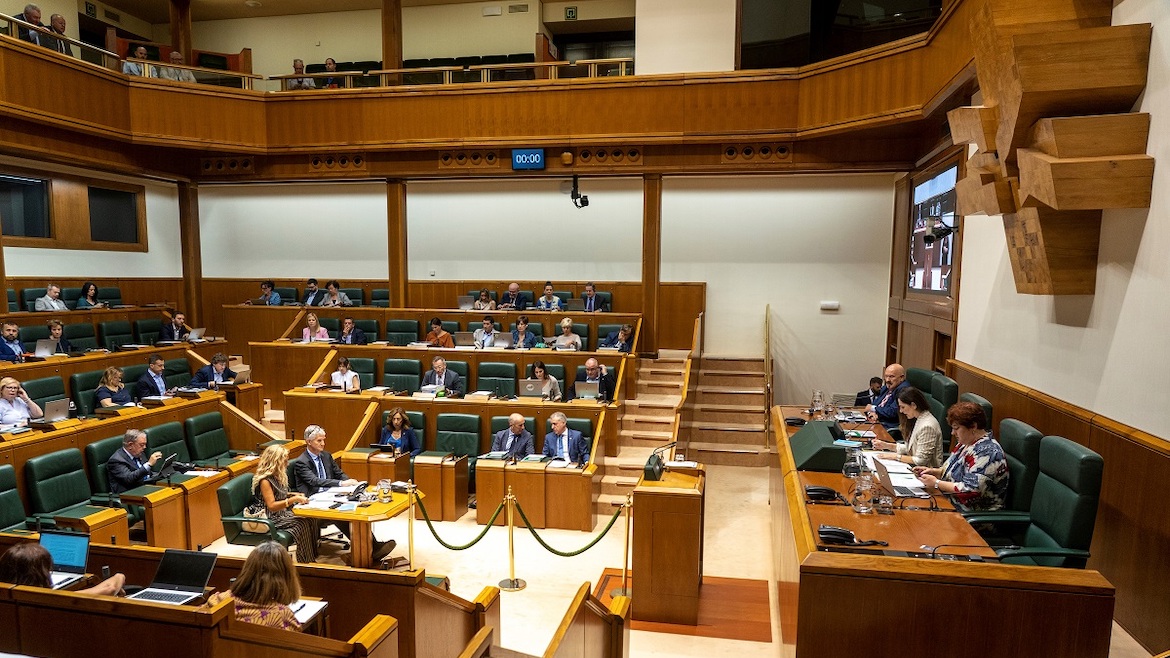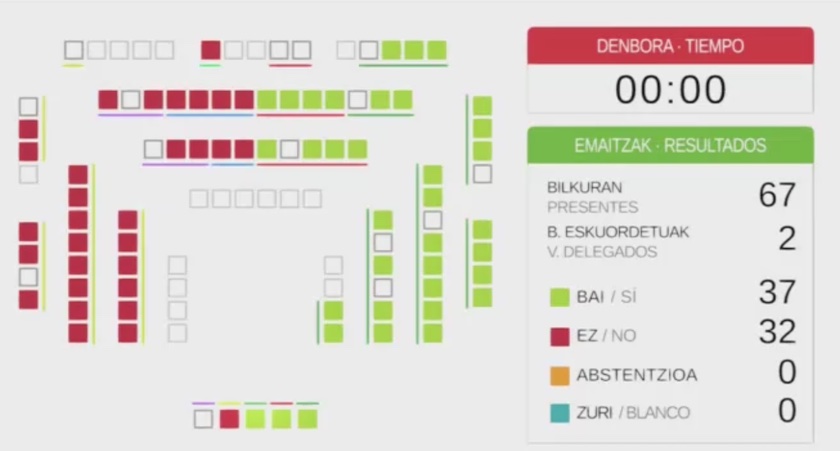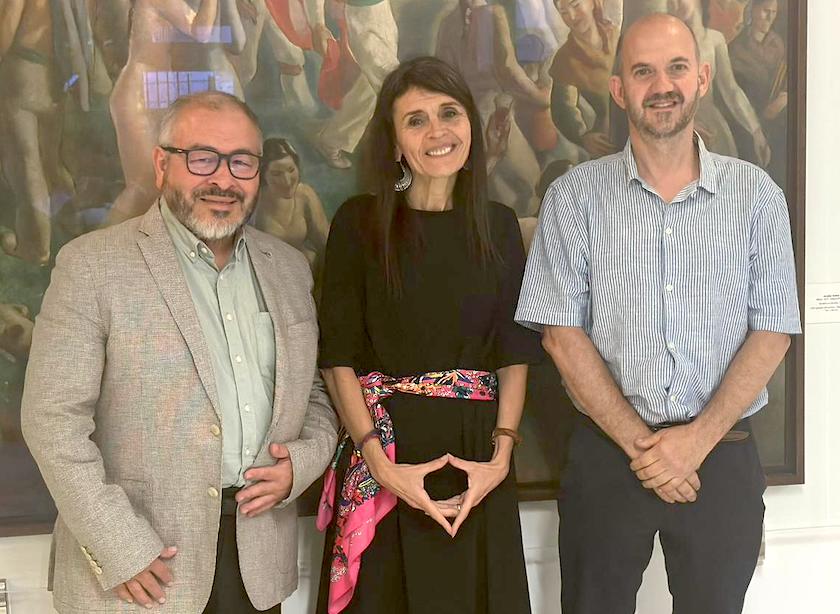The regional parliament tries to solve the problem of worship places and creates an Interreligious Council for faith minorities.
 Plenary session of the Basque Country Parliament, on 29 June, when the Religious Diversity Law was passed.
Plenary session of the Basque Country Parliament, on 29 June, when the Religious Diversity Law was passed.
The Basque Parliament (northern Spain) approved the Law on Places, Centres of Worship and Religious Diversity in the Autonomous Community of Euskadi (Basque Country in Basque language) on Thursday 29 June.
It received the votes of the government coalition (Nationalist Party of the Basque Country and the Social Democrats) and the “no” votes of the opposition.
The aim is to “protect coexistence and religious diversity in Basque society”. To this end, it establishes mechanisms for dialogue and agreement, seeking to guarantee the exercise of the fundamental right to religious freedom of individuals and of the different churches, confessions and religious communities.
According to the Basque government, the law will offer equal conditions for all confessions.

[photo_footer] The votes of the Basque parliament.[/photo_footer]
The Regional Minister of Equality, Justice and Social Policies, Nerea Melgosa, told the regional parliament in Bilbao that the new law “promotes the conditions and removes the obstacles so that the freedom and equality of the people and the groups they belong to, may be effective and real”.
The law regulates the creation of the Basque Interreligious Council, which will have advisory and reporting functions, “a forum for dialogue and agreement in which to share diagnoses and propose actions aimed at protecting and promoting the plurality of our society”, said Melgosa.
According to the map of religious diversity in the Basque territories, by Ikuspegi and the Pedro Arrupe Human Rights Institute of the University of Deusto, the most deeply-rooted religious denomination in the Basque Country continues to be Catholicism, with one and a half million people.
It is followed by the Muslim faith, with 90,000 followers, evangelical churches with 30,000 people, and the Orthodox Church, with 19,000. Buddhists, Jews and Hindus complete the mosaic of religious diversity in the Basque Country.
The Regional Minister for Equality, Justice and Social Policies ended her speech stressing that "this is an important step forward in favouring an integrated and integrating coexistence in a plural society, also from the point of view of religious beliefs and convictions”.
Miren Gallastegui of the Social Democrats (PSE-EE) underlined that the law consolidates the procedure that will guarantee the opening of places of worship and provides for better municipal planning.
The president of the Evangelical Council of the Basque Country, Julio Martínez, spoke to Spanish news website Protestante Digital after attending, as a guest, the debate and vote on the new law.
Although they still had to study all the implications of the law, the first impression was “positive”, Martínez explained. “The law had been shelved for about ten years, and it was only in the last two years that it has been put back on track”, acknowledged the president of the evangelical organisation.

[photo_footer] Raúl Vazquez, Secretary of the Evangelical Council of the Basque Country; Nerea Melgosa, Minister of Equality, Justice and Social Policies; and Julio Martínez, President of the Evangelical Council of the Basque Country. [/photo_footer] The Basque government has played an important role in the advancement of the law. as it has shown “a great willingness to help us and to know our needs”, explained Martínez, who recalled that only some days before, Melgosa, signed a protocol for evangelical religious care in prisons.
The Evangelical Council will have representation in the new Basque Interreligious Council, which will facilitate communication and dialogue with the government and other institutional agents, as well as between the different faiths in the Basque Country.
Martínez recalled the conflict that arose nine years ago in Bilbao, when the City Council wanted to limit the presence of places of worship in the city through a criticised urban development plan, which led to a lawsuit in which the courts eventually ruled in favour of the religious minorities.
The law that has just been passed will help to ensure that such situations do not happen again. It also specifies that city councils must set aside space for places of worship for religious minorities.
[donate]

Las opiniones vertidas por nuestros colaboradores se realizan a nivel personal, pudiendo coincidir o no con la postura de la dirección de Protestante Digital.
Si quieres comentar o